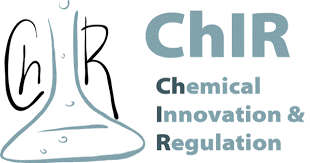
Unibo structure involved: Department of Chemistry "Giacomo Ciamician" - CHIM
Scientific manager: Emilio Tagliavini
Unibo Team: Emilio Tagliavini, Alessandra Tolomelli, Marta Sanna
Project Web page: http://www.emmcchir.org
Erasmus+ Action type: Learning Mobility of Individuals Erasmus Mundus Joint Master Degrees
Project reference: 619824-EPP-1-2020-1-PT-EPPKA1-JMD-MOB
Start Date: 1 October 2020
End Date: 30 September 2026
Budget: Total: € 4,442,000 UNIBO: € 1,519,275
Coordinator
UNIVERSIDADE DO ALGARVE (PT)
Partners
ALMA MATER STUDIORUM – UNIVERSITÀ DI BOLOGNA (IT)
UNIVERSITAT DE BARCELONA (ES)
Summary
Chemicals play an irreplaceable role in everyday life. However, their use involves a risk: some may be highly toxic to humans and to the environment, or they may cause physical and chemical hazards. To ensure a toxic-free environment, modern society demands chemicals strategies for sustainability. International chemical regulations such as the European REACH are an essential step in the right direction, promoting innovation to design safer chemicals and search for innovative chemical applications. ChIR prepares professionals with the scientific, regulatory and economic knowledge necessary to manage the risks of chemicals and to meet responsibilities over chemical legislation worldwide. Its multicultural environment fosters innovation while exploring the most recent trends on chemical circular economy and sustainability. As an Erasmus Mundus Joint Master Degree, it promotes joint scientific research in the fields of chemical safety to support chemical regulations and propose safe alternative chemicals and processes. The master is offered by the ChIR Consortium: University of Algarve (Portugal)University of Barcelona (Spain)University of Bologna (Italy)A large network of associated partners including research centers, industry associations, companies and academic institutions assures the access to top research environments, internship positions and contact with the industry environment. The master duration is 2 years: 1 year of taught modules and 1 year of internship, research project and thesis. The exclusive language of instruction is English. Each university also offers local language training. The taught programme is organized into a large offer of course units allowing students to build a personalized study plan according to their own interests and employment outlook. By the end of the programme students will:- have a thorough understanding of international regulations on the use of chemical substances;- be able to design new safe chemical products; - be able to project a business plan for the commercialization of new chemical products;- understand the industrial implementation of new processes;- understand circular economy and its implications in chemical safety;- evaluate environmental, toxicological, physical and reactivity risks of chemical substances. Teaching takes place in one of the Universities of the consortium. Lecturers are specialists from all the partner institutions. The Host University rotates every year. In the 2nd year each student moves to a second country of the consortium to complete the internship, research project and thesis. Part of the research project can be done in collaboration with one of the associated partner institutions of the Consortium either in Europe, in Brazil, China, Japan, India, Argentina or Uruguay. The final Qualification obtained is a Join Master Degree in Chemical Innovation and Regulation awarded by the three Universities of the ChIR Consortium.
